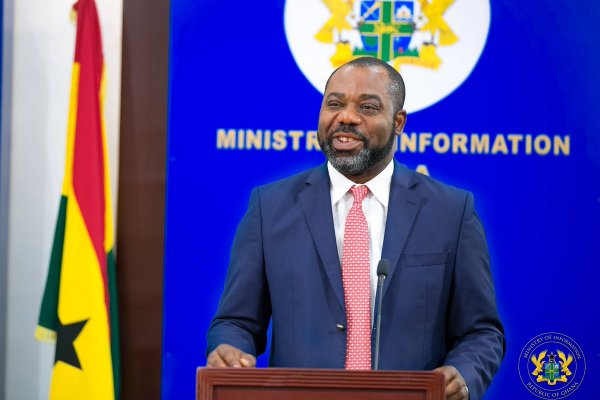Published
6 years agoon

He said the move would enable teachers to invest in improving and upgrading their skills and keeping abreast of modern trends to assist in improving learning outcomes.
Dr Prempeh stated this when he presented a statement on education and teacher reforms in Parliament Tuesday.
Government motivated
The minister said with teachers at the centre of the education system, the government was motivated to initiate several reforms in the education space.
Such initiatives focused on positioning teachers to acquire the right set of skills to deliver quality learning outcomes for pupils and students.
He said for years, pupils and students in basic school – from kindergarten, primary to junior high school (JHS) – were taught by teachers whose initial training had consistently been a source of worry.
Qualifications
Dr Prempeh noted that the minimum teaching qualification for basic school teachers used to be Diploma in Basic Education (DBE) from colleges of education while their counterparts in second cycle schools’ was a bachelor’s degree from the universities.
To address the challenge, he reiterated that the minimum qualification for teaching at basic schools was now a first degree, in addition to other regulatory requirements of the National Teaching Council.
“Working in close collaboration with, and the support of the T-TEL programme, our aim is to upgrade capacity and improve upon the quality of teacher education to position our teachers to be able to respond to our current and future challenges in education,” he said.
Licensure programme
Touching on other reforms, the minister said the Education Act (Act 778), passed by Parliament in 2008, led to the setting up of the National Teaching Council (NTC) with responsibility for setting professional standards, registering and licensing teachers.
Since 2018, he said, the government had supported the NTC to successfully put in place the mechanisms for the conduct of a rigorous and credible teacher licensure examination as provided by law under the Education Act.
“The aim of the teacher licensure regime is primarily to enable qualified teachers to acquire a professional licence and prepare them to meet the demands of the National Teaching Standards as well as Global Standards of minimum knowledge, skills, values and attitudes necessary to deliver effectively in schools,” he said.
Book/research allowance
Dr Prempeh noted that the Book and Research Allowance which was abolished by the previous government had been restored by the current administration, which had also approved a 200 per cent increase in the allowance from the GH¢500 to GH¢1,500.
Further to that, he said the government had laid before Parliament the Ghana National Research Fund Bill to provide for funds and to support national research in tertiary and research institutions.
Support for upgrade
Dr Prempeh indicated that through the GETFund, the government was providing support for university teachers who wanted to upgrade themselves.
He added that staff who fell short of the minimum qualifications required to teach in technical universities and colleges of education had up to two.
Source: graphic.com
